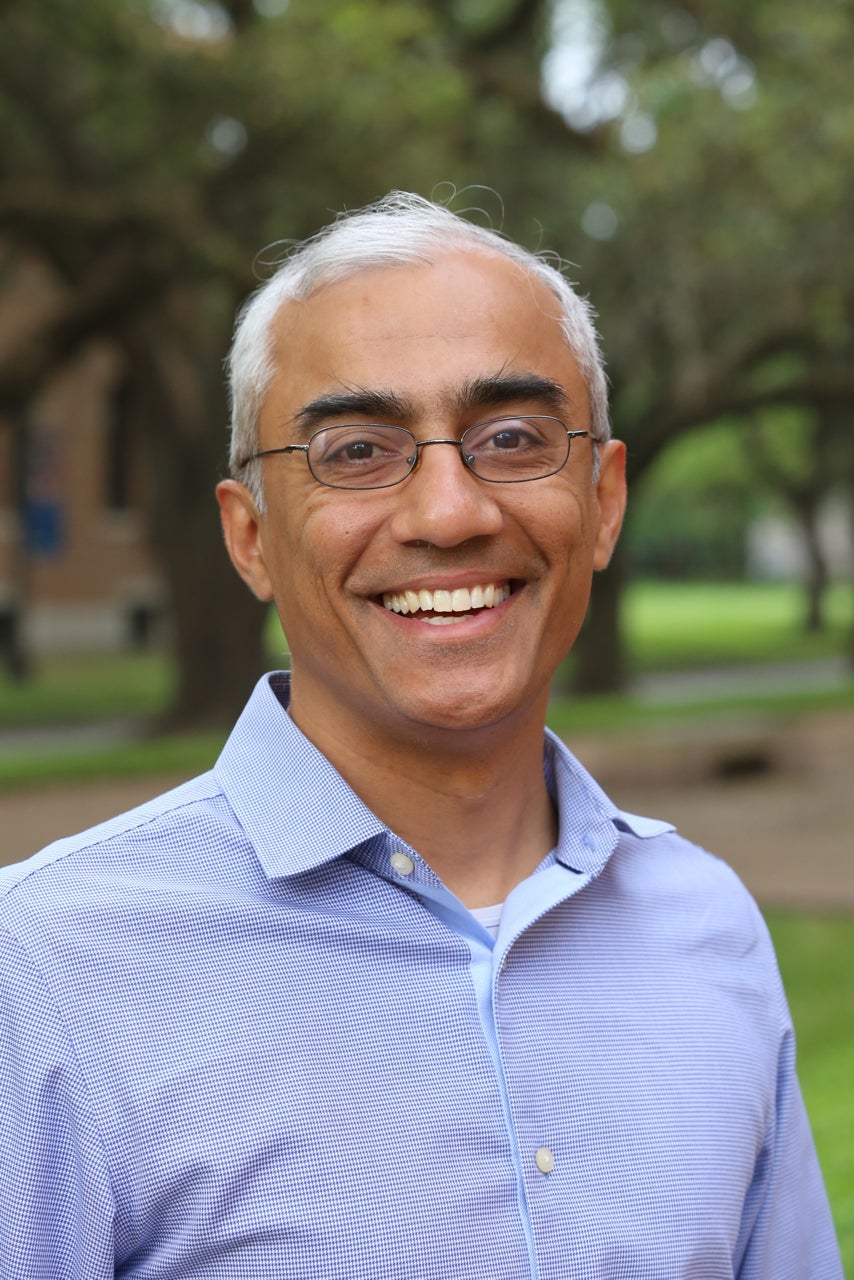Mentored presenters may have participated in these courses
BIOE 400
Student Project Titles List
Development of user controlled blood flow modeling device for testing low-cost Blood Perfusion Imaging system
Optical Design for Motion Compensation in Wearable Devices
Rice Wearables Lab: Digital Phantom Model for the Assessment of Novel Bio-Imaging Systems
Towards Sociability Measures Using Speech Classification
Research Areas
Professor Sabharwal is department chair for the ECE. Dr. Sabharwal received his B.Tech in 1993 from IIT - New Delhi, and his M.S. and Ph.D. degrees in Electrical Engineering from The Ohio State University in 1995 and 1999, respectively.
He currently works in two research areas. His first area of research is wireless, where his research spans fundamental theory and experimental systems. He is the founder of WARP project (warp.rice.edu), an open-source project which is now in use at more than 125 research groups worldwide, and have been used by more than 500 research articles. He is currently leading RENEW (renew-wireless.org), an NSF PAWR project, that is developing world’s first open-source massive MIMO platform for a deployed city-scale national wireless testbed. He is also leading the wireless networks thrust in the ARL-Rice Center for advanced materials and networks.
His second area of research focuses on health, at the intersection of engineering, behavioral sciences and medicine, and established Scalable Health Labs (sh.rice.edu). Scalable Health Labs’ mission to develop methods to uncover behavior-biology causal pathways, with a specific focus in three areas: bio-behavioral sensing, mobile bio-imaging, and data science methodologies. Sabharwal is leading several NSF-funded center-scale proposals; most notably, he is the PI of “See below the skin” (seebelowtheskin.org) for non-invasive bio-imaging multi-university effort, and co-investigator on NSF Engineering Research Center, PATHS-UP (pathsup.org) that is developing cost-effective personalized technologies for under-served populations.

